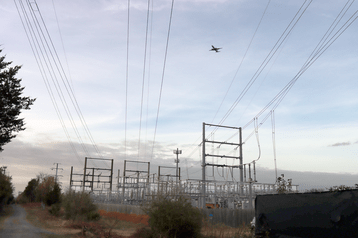Politicians in the US have tasked the US energy watchdog, the Federal Energy Regulatory Commission (FERC), to explain how it plans to deal with the growing electricity demand from AI data centers. Republican congressperson and Chair of the House Energy and Commerce Committee, Cathy McMorris Rodgers, and Energy, Climate, and Grid Security Subcommittee Chair, Jeff Duncan have directed attention to the Energy Commission, urging clarity on how the agency plans to manage this unprecedented growth.
After years of slow growth, electricity demand in the United States is projected to rise significantly by the end of the decade. This uptick is largely attributed to the rapid rise of AI-centric data centers, which are designed to handle complex computational tasks. According to estimates, these facilities could consume up to 9.1 percent of the nation’s electricity by 2030—a tenfold increase from current levels.

The lawmakers underscored their concerns in a letter to FERC, highlighting the urgent need for strategies to accommodate this burgeoning demand while maintaining grid stability and manageable pricing for consumers.
“It is anticipated that much of this demand growth will come from a surge in the number of data centers and the growing uses of AI by data centers, onshoring of industry and manufacturing, and increased electrification,” the congresspeople said.
“Estimates show annual growth of five to six percent through the end of the decade, a tenfold increase in the growth rate from current levels. By the end of the decade, data centers, which are driving increases in electricity demand, could consume as much as 9.1 percent of all electricity in the United States.”
FERC, tasked with navigating these complex dynamics, faces a pivotal moment in shaping energy policy to accommodate technological advancements while maintaining a resilient and affordable energy infrastructure. As the July 30 deadline approaches for FERC’s response to congressional inquiries, stakeholders await crucial insights into how the agency plans to address these pressing energy challenges.
Globally, the rise in AI data centers is poised to impact energy dynamics beyond the U.S., potentially influencing national power supplies in regions like Africa. As data infrastructure becomes more essential for economic growth and technological advancement, African countries must anticipate similar challenges in managing increased electricity demand while striving for sustainable energy solutions. Balancing these demands will be crucial for ensuring robust economic development and technological innovation across the continent.




